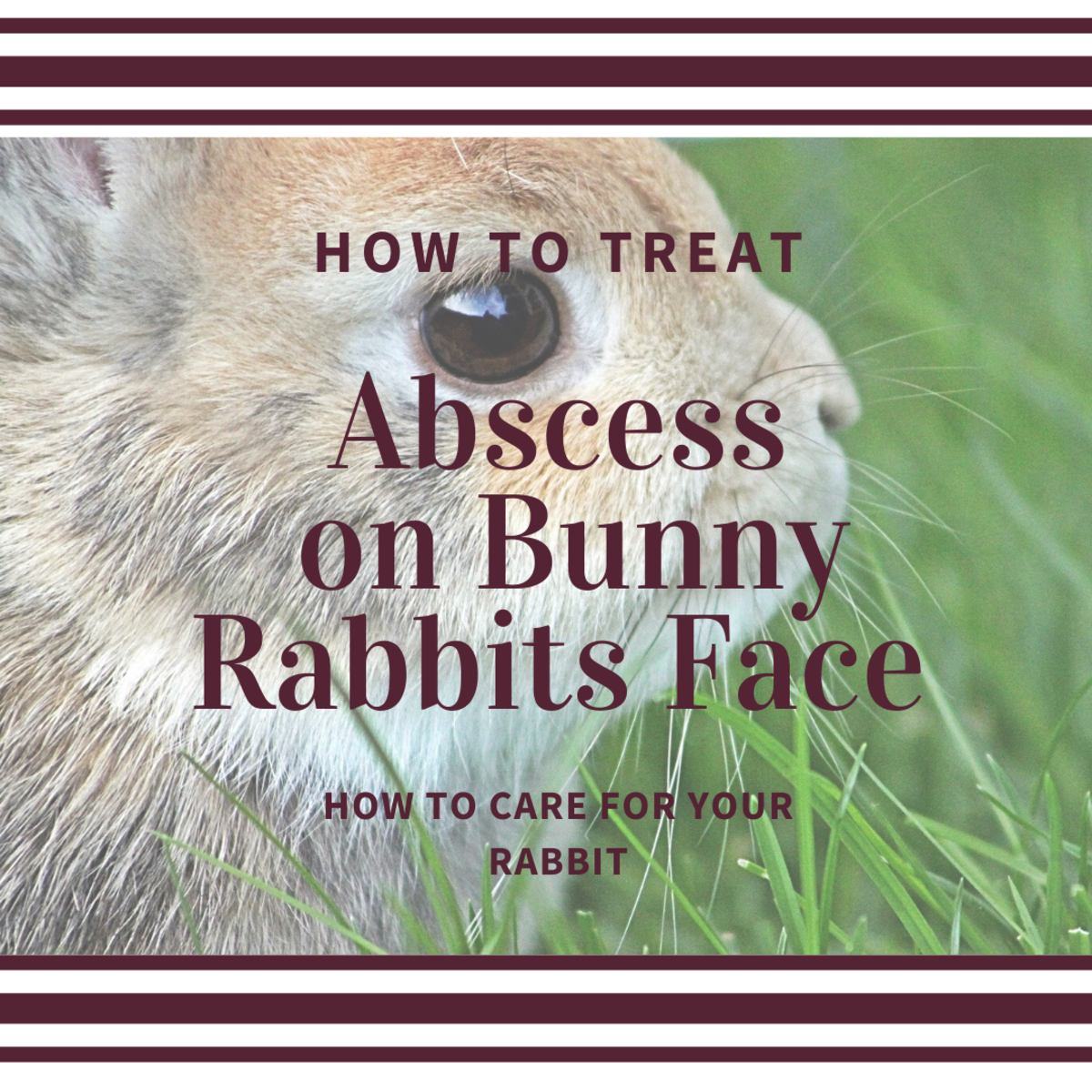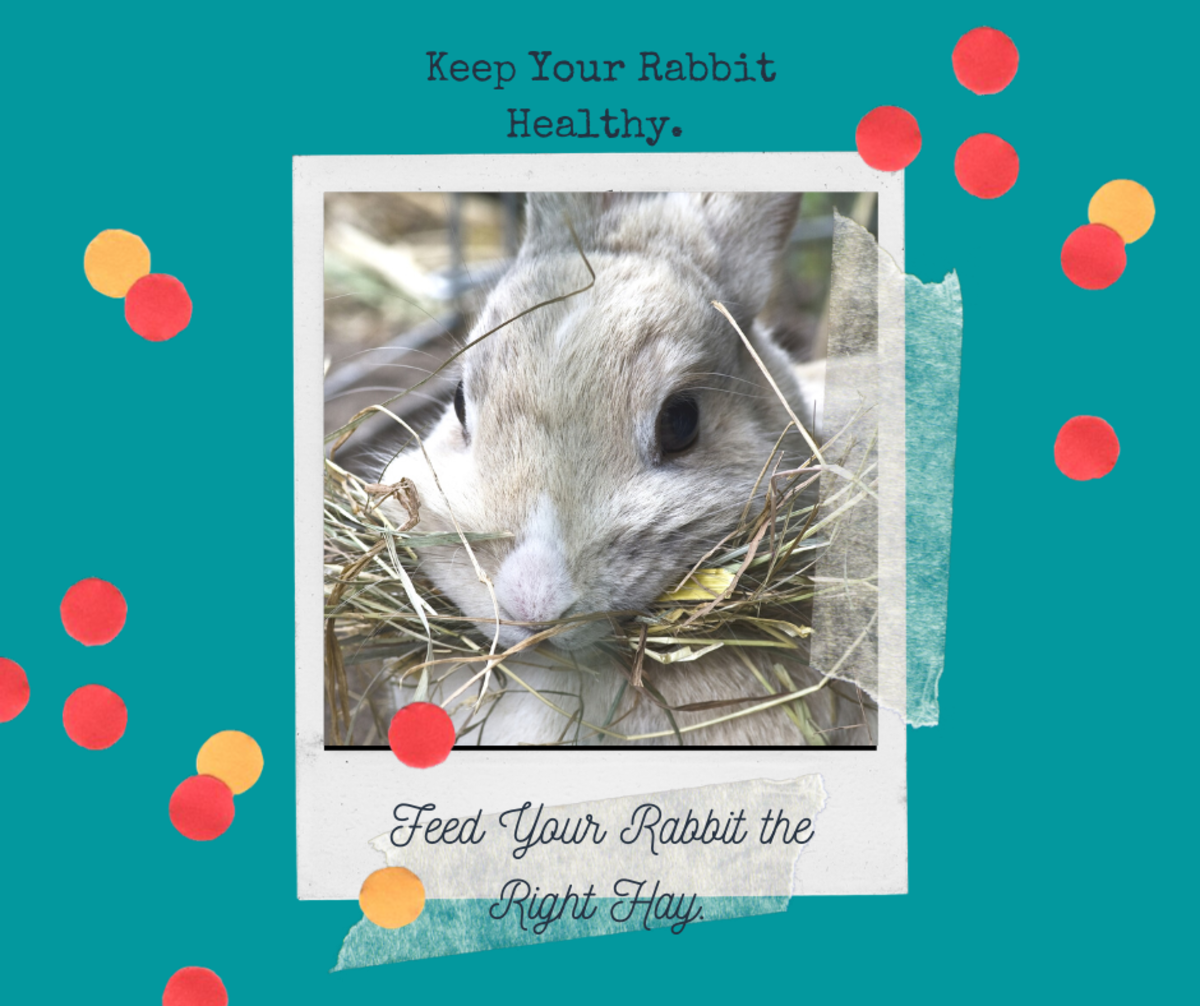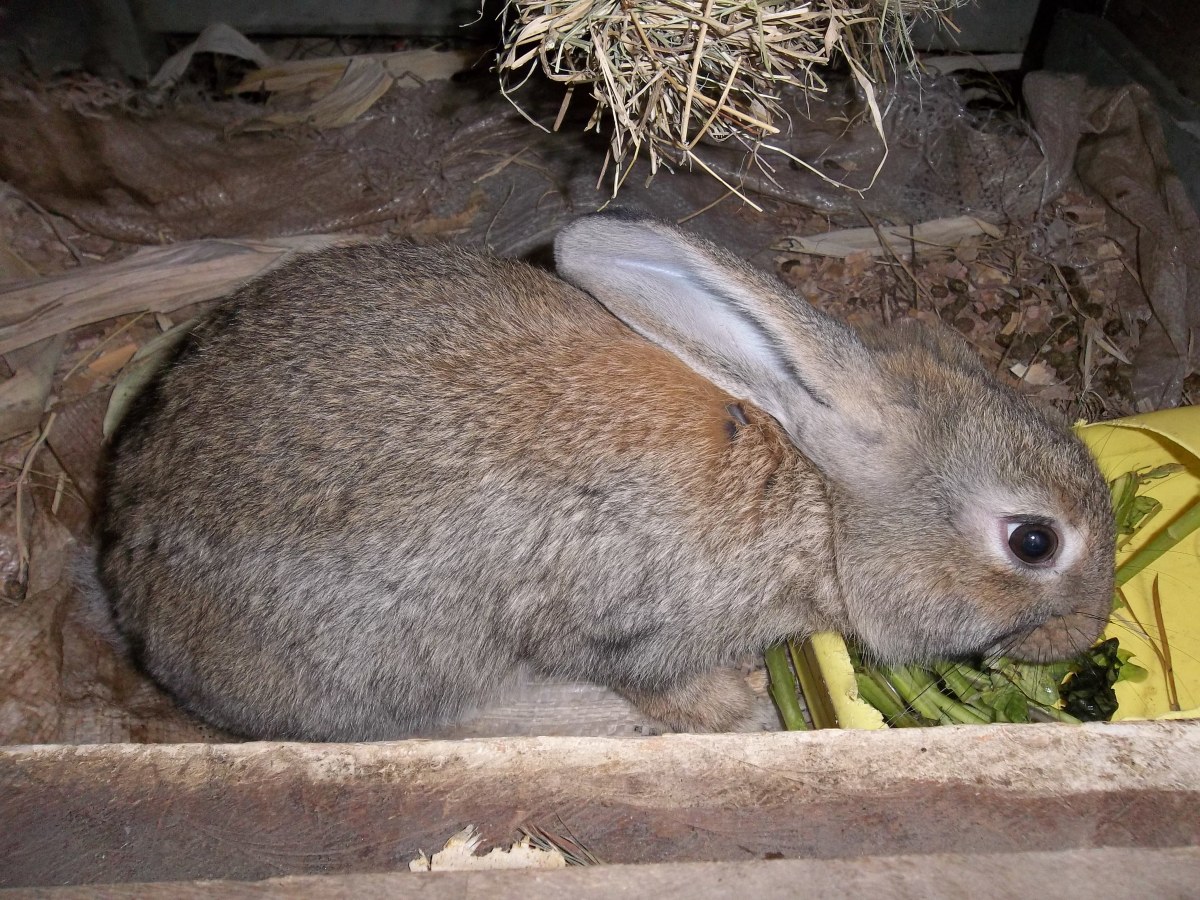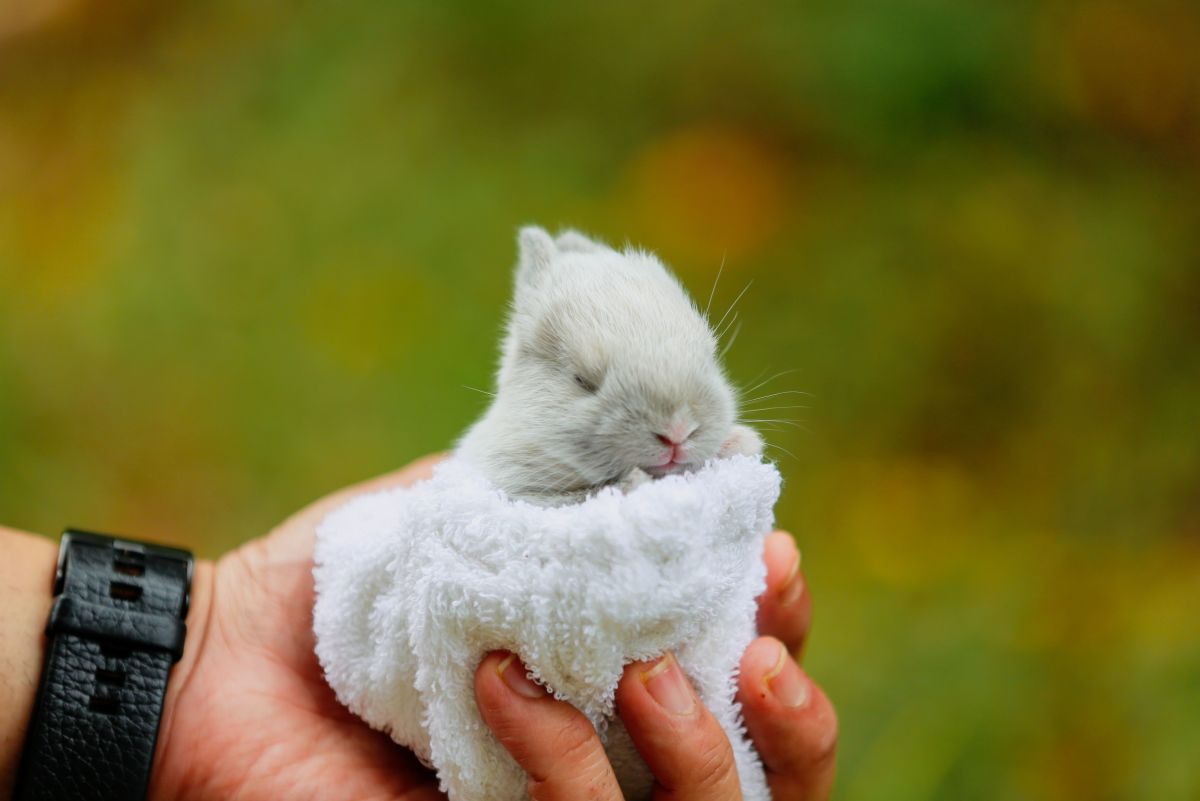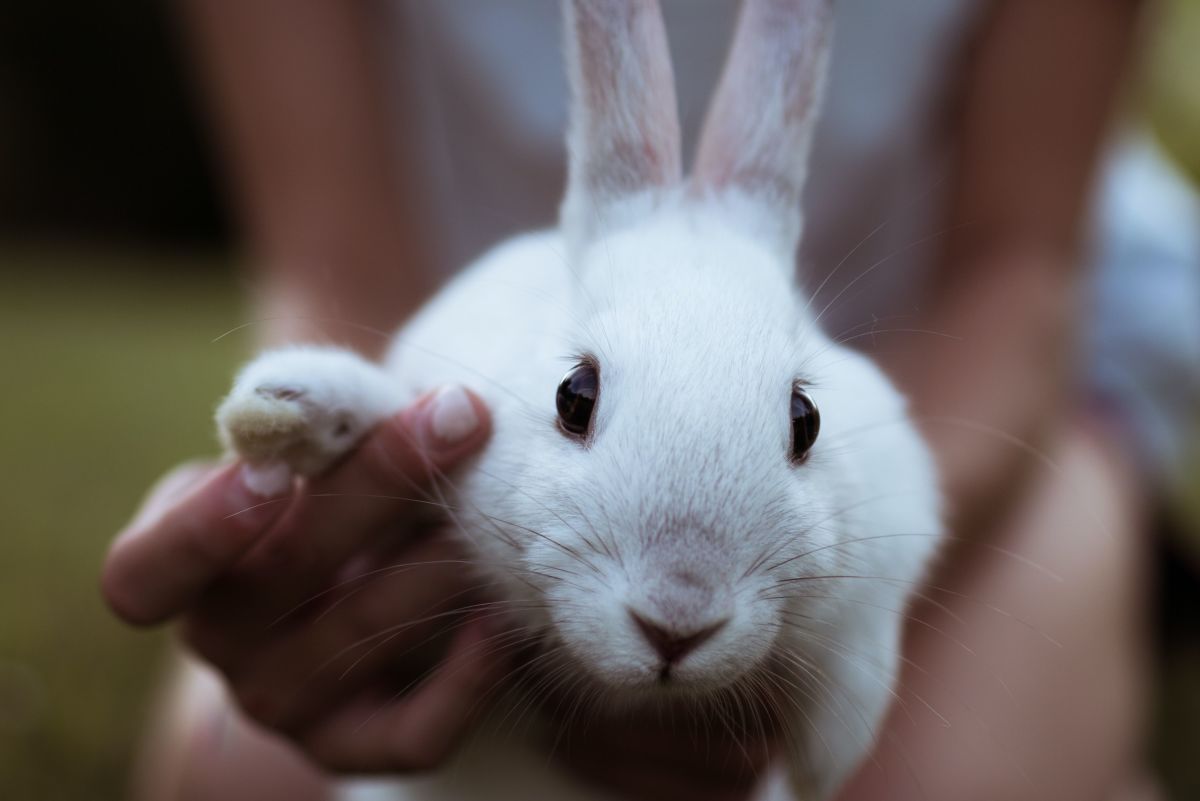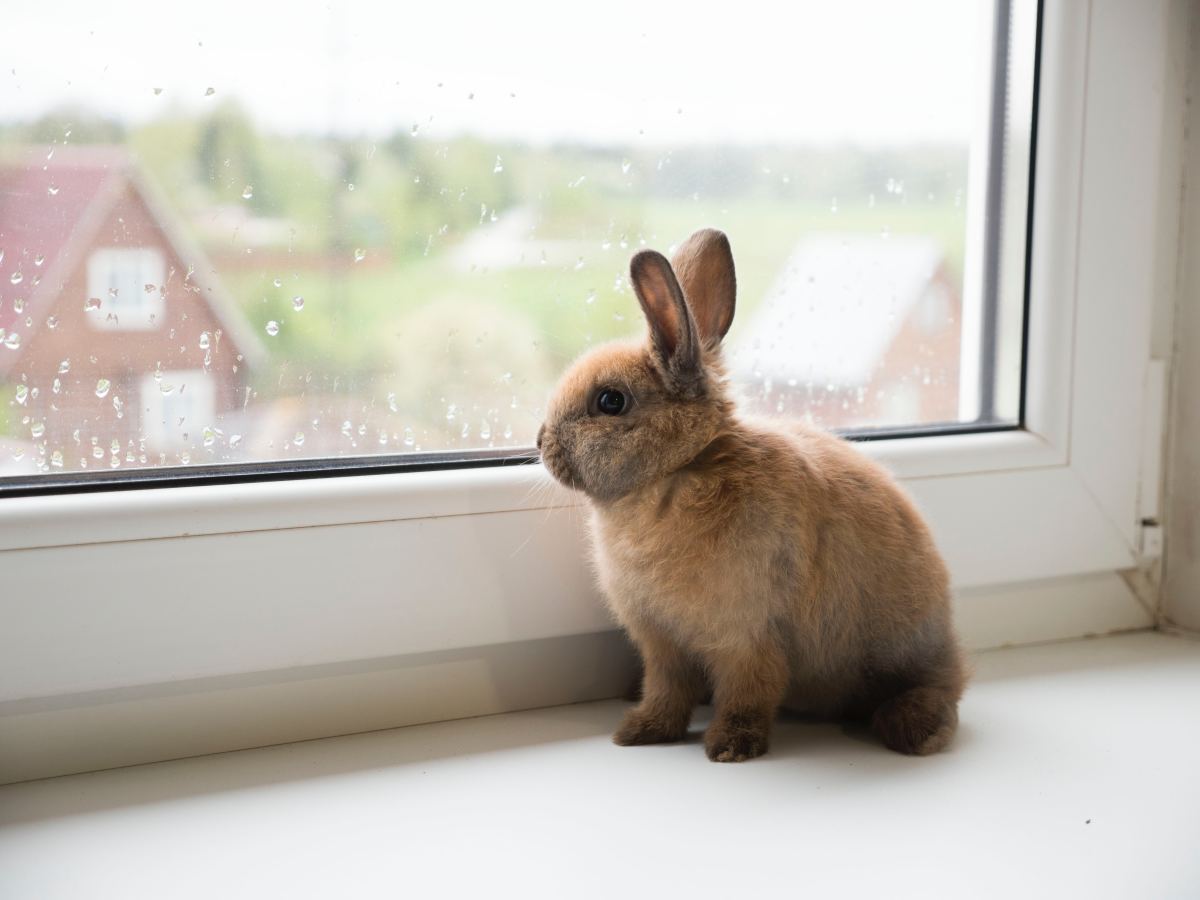What Can Rabbits Eat?
If you're wondering what your rabbit can and can't have - and what's good for them and what's not so good, look no further!
What Should I Give My Rabbit?
Water
Of course, water is an essential for your rabbit. Make sure that your rabbit always has access to fresh water, checking at least twice a day, and keep the bottle or bowl clean. If you switch between a bowl and a bottle, make sure that your rabbit is getting to grips with the change and that they are still drinking. The amount of water that rabbits drink can be very varied - make sure that water is always available and consult your vet if your rabbit is drinking an unusual amount (drinking a lot of water can be a sign of diabetes, for example).
If your rabbit lives outdoors, check that their water is not in direct sunlight so that it does not get too warm or grow algae in hot weather, and ensure that it does not freeze in cold weather. If you are using a water bottle, check it daily to ensure that it is not blocked. Rabbits can get unwell in a very short space of time without access to fresh water.
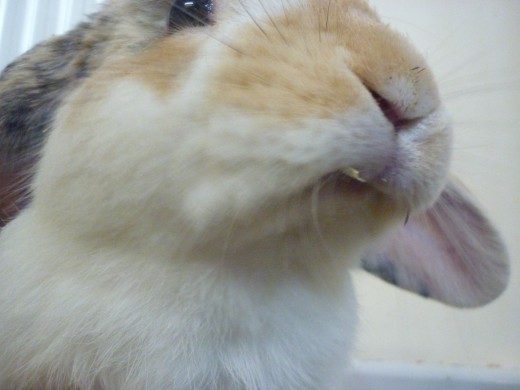
Fresh hay
Fresh hay, such as timothy hay or other grass hays are essential to your rabbit's nutrition. Rabbits should be eating at least their own body size in hay on a daily basis, so make sure that your bunny has constant access. Whilst you may wish to use hay as bedding, you should ensure that your rabbit has access to clean, fresh hay as well.
Grass and hay are not only important for a rabbit's digestion, but they also help to stop your rabbit's teeth from getting overgrown, so plenty should be provided at all times. Naturally, rabbits will graze on grass or hay for long periods at time (especially in the morning and evening), so the more fresh hay you can provide your rabbit with, the better!
There are many different types of hay feeder on the market, including ones which are fun for your rabbit or that promote exercise!
Make sure that you don't feed your rabbit lawnmower clippings - this can upset your rabbit's digestive system.
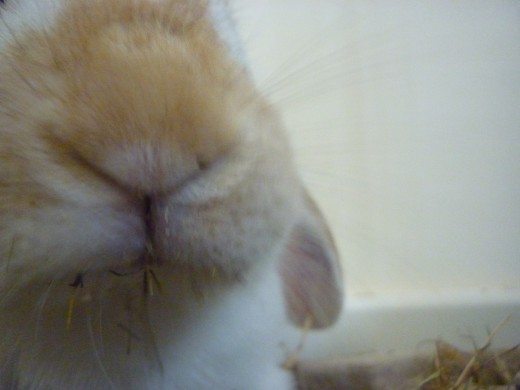
Good quality rabbit pellets/nuggets
Some sources state that rabbit nuggets should be fed once daily (a tablespoon full) for rabbits under 3.5kg and twice daily (a tablespoon full for each serving) for rabbits over 3.5kg. Other sources claim that it is recommended to feed an egg cup of nuggets (up to 2 egg cups full) for every kg your rabbit weighs.
If you do not know how much your rabbit weighs, or want more exact advice on how many nuggets to feed your rabbit, you should consult a vet. For example, underweight or growing rabbits may require larger portions, as well as rabbits that are pregnant or nursing. Conversely, feeding your rabbit too many nuggets may mean that they don't eat enough hay or grass - since this is essential to your rabbit's health, make sure that you don't overfeed on these commercial pellets.
It is best to speak to a vet about portion sizes for your rabbit since levels of activity, age and their health can all play a part in determining the ideal amount. If your rabbit appears to be getting obese you should also see your vet as this can cause your bunny to suffer.
Whilst rabbit muesli (similar in appearance to the food usually given to hamsters or other small rodents) is often seen in pet shops, this is not recommended as part of your rabbit's diet. Not only are rabbits prone to pick-eating the bits that they like from rabbit muesli and missing out on some nutrients, but this type of food is also linked to dental disease as it does not wear the teeth down - this can cause your rabbit pain.
Fresh Vegetables
Rabbits should have a variety of fresh vegetables - fresh greens are recommended twice daily in one-handful portions consisting of 5-6 different types of greens. Fruit and root vegetables, however, are high in sugar and should be fed in limited amounts. If you're not sure whether your rabbit can have a certain vegetable or fruit, you should check first with your vet.
Changing Your Rabbit's Diet
Introducing your rabbit to any new food should be done gradually so as not to upset their digestive system. You may want to give them small amounts of a new food over the period of a week or more, monitoring their reaction to it.
Remember that rabbits would not naturally eat cereals, fruit or root vegetables - these should always be given in moderation even if your rabbit seems well adapted to such foods as they can cause health problems in the long run.
Always monitor your rabbit's food, hay and water intake so that you can tell if there are any changes. Also keep an eye on the amount that your rabbit poops and the kind of poops that they do - whilst this may sound gross, it is important to note any changes in case they indicate a health or digestion problem in your rabbit.
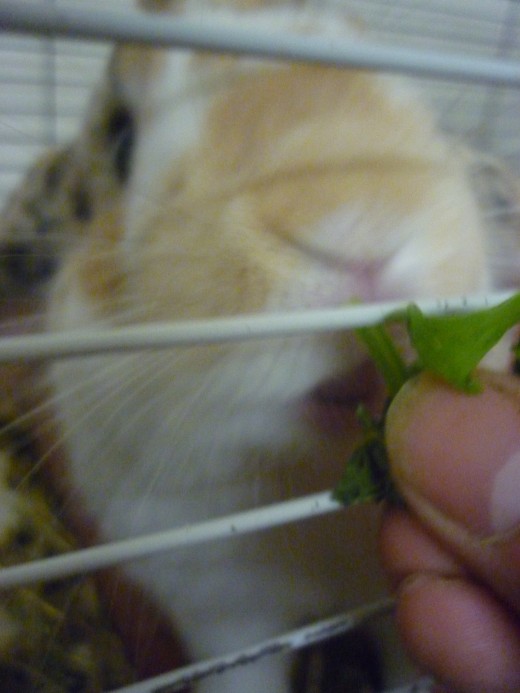
What About Carrots?
Whilst most of us link rabbits and carrots, carrots and other root vegetables are actually fairly high in sugar. Whilst you can feed your bunny carrot, this should only be done occasionally. The leafy tops of carrots make a great snack for rabbits, however, so if you grow your own or buy them with the tops on, share these delicious greens with your bun friend!
What Greens Can I Feed My Rabbit?
Rabbits should eat safe greens (including green leafy vegetables, herbs and weeds) daily.
The following greens are safe to feed your rabbit:
- Artichoke leaves
- Asparagus
- Basil
- Broccoli
- Brussels sprouts
- Cabbage
- Cauliflower
- Celeriac
- Celery leaves
- Chard
- Chicory
- Courgette
- Dock
- Endive
- Green beans
- Kale
- Parsley
- Radiccio
- Radish tops
- Rocket
- Salad peppers
- Spinach
- Watercress
Can I Feed Rabbits Dandelion?
Dandelion is another snack that should be fed to your rabbit in moderation as it can have a laxative effect. You should also be careful if you are collecting wild dandelion - make sure that no pesticides or other chemicals have been used in the area before giving to your bunny.
Fruity Treats (also feed in moderation)!
Rabbit-Friendly Fruits
Whilst you should only feed fruit to your rabbit occasionally, and in small quantities, the following are safe for your bunny to eat:
- Apples (no core, stem or seeds)
- Apricots
- Banana (two small slices per day maximum)
- Blackberries
- Blueberries
- Cherries
- Cranberries
- Currants & raisins
- Grapefruit
- Grapes
- Kiwi
- Mango
- Melons
- Nectarine
- Orange
- Papaya
- Peach
- Pears (remove seeds)
- Pineapple (remove skin)
- Plums
- Raspberries
- Star fruit
- Strawberries
- Watermelon
The leaves of strawberries, raspberries and blackberries are also fine for your rabbit to munch on, as are the peels of grapefruit, oranges and lemons and the peels and seeds of melons.
Lemons and limes (if your rabbit will even eat them) can also be consumed, but in only small amounts due to their acidic content. The peels, however, are toxic.
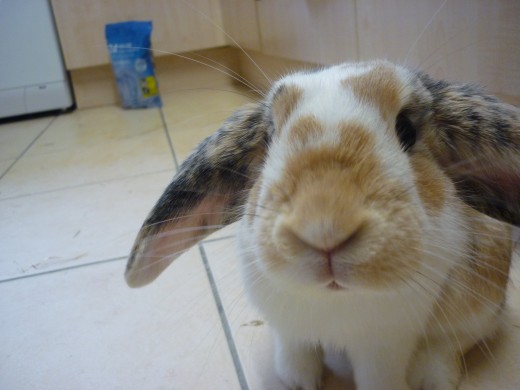
Does your rabbit have a favourite food?
Don't Feed Your Rabbit These!
Do not feed your rabbit the following foods as snacks:
- Amaryllis
- Bindweed
- Bracken
- Elder Poppies
- Foxglove
- Laburnum
- Yew
- Lily-of-the-Valley
- Lupin
- Oak leaves
- Privet
- Ragworm
- Rhubarb leaves
Most evergreen plants are also unsafe for rabbits, so definitely check these before considering feeding them to your beloved bun!
Uh... My Rabbit is Eating it's Poop!!
Don't fear if you catch your rabbit eating its own poop. This is completely natural behaviour. Rabbits don't have the greatest digestive system meaning that their faeces still contains useful nutrients on its first exit. Rabbit poops that are shiny, dark in colour and stinky (doesn't sound appetising, does it?) are called caecotrophs and your rabbit will eat these without a second thought, most often when they're on the way out. The pellet-like dry poops that we tend to associate with rabbits are the result of a second trip through their digestive system. Yummy.
What About Treats?
Whilst fruit would be considered as a treat for rabbits, there are also many rabbit treats on the market. Ensure that these treats are natural and try to avoid anything that may be too sweet (including honey) as sugary treats can cause digestive and dental problems in rabbits.
You can get treats which are healthy for your rabbit, too, such as hay cakes which are just made of compressed hay. This gives your rabbit something fun to occupy them with whilst also maintaining their digestive and dental health.
How to Spot a Dental Problem in Rabbits
Make sure you visit your vet if you suspect that your rabbit is suffering from dental problems. These can cause a lot of pain and discomfort.
If your rabbit starts to go off their food or their hay, this can be a sign that they may have dental problems. Aside from keeping an eye on your rabbit's food intake, you should also take note if your rabbit loses weight as this might suggest that they aren't eating what you're providing them with (particularly if they throw their food/bowl around!).
Similarly, they may avoid using their mouth for other things, such as cleaning themselves - if you notice that your rabbit has a dirty rear end, dental problems may be the cause for this.
If your rabbit appears to be drooling, or has a wet chin indicating that they have been drooling, this could also be a sign of a dental problem. A lesser-known indication is eye discharge - abnormal tooth roots in rabbits can affect the eyes.
Any of the above should be looked into immediately.
Foraging Fun!
Rather than feeding your rabbit all of their nuggets in a bowl and all of their hay from a feeder, it is a good idea to give your bunny plenty of opportunities for foraging and other play!
Here are some ideas for foraging fun for your rabbit:
- A digging box
An empty box, some hay and a sprinkling of nuggets or treats are all the ingredients you need - not only will your rabbit have hours of entertainment foraging and munching hay, but this can also dissuade house rabbits from digging at your carpets or furniture! - Toilet roll tubes
Stuffing toilet roll tubes with hay, greens and other snacks can be a great way to re-create natural foraging. Make sure that you remove these if they contain anything that spoils or if they get soiled at all. To make the digging box more of a challenge, store pre-stuffed toilet roll tubes in it for never-ending fun! - Hanging hay feeder
You can find hanging hay feeders, as well as other novel feeders for rabbits which keep them occupied and mimic natural foraging. This is great for your rabbits mind and is a fun way for them to get exercise!
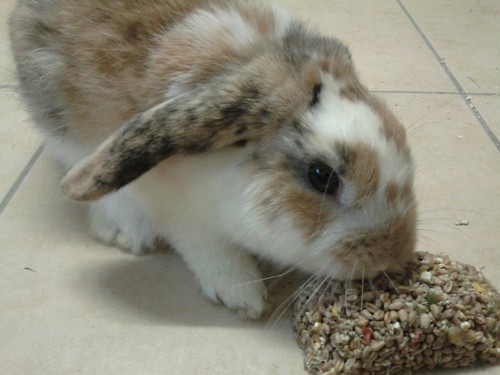
Feeding your rabbit the right foods and keeping their minds and bodies active is the key to a happy bunny friend! Do you have any other tips or advice?











